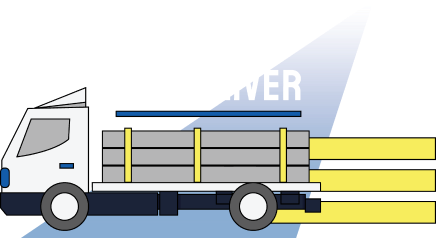
Construction sites in Fort Lauderdale face unique safety challenges—salt‑air corrosion, humid conditions, and stringent local regulations. For contractors and workers, compliance isn’t just a legal requirement—it’s a lifesaver. In this guide, we break down OSHA and Florida compliance for ladders and Fort Lauderdale scaffolding, flag common safety violations, and explain how House of Ladders helps companies stay safe and stress‑free.
1. OSHA Requirements for Ladders & Scaffolding
1.1 Ladder Safety (29 CFR 1926 Subpart X)
- Ladder Selection: Must be rated for duty (I‑IV) and suited to the task.
- Inspection & Maintenance: Pre‑use checks for cracks, corrosion, and loose rungs; documented inspection logs required.
- Proper Use: Maintain a 4:1 ratio angle; secure top and bottom; never exceed load rating.
- Fall Protection: Use cages or guardrails on ladders above 24 ft. Stepladders cannot exceed 20 ft.
1.2 Scaffolding Safety (29 CFR 1926 Subpart L)
- Qualification & Inspection: Scaffolds require assembly by trained and qualified personnel. Daily checks before use.
- Guardrails & Planking: Platforms over 10 ft high must have guardrails and toe boards. Solid deck planking with 60% overlap.
- Load Handling: Designed to support 4× the intended load without failure.
- Fall Protection/Access: Use ladders or stairways to access platforms—never climb frames without braces.
2. Common Safety Violations & Prevention Tips
One of the most frequent safety violations on job sites involves the use of damaged or outdated ladders. These often go unnoticed due to wear and tear or neglect. To prevent accidents, it’s crucial to inspect ladders daily and retire any that show signs of damage or are past their service life, typically around 10 years. Another major issue is unsecured scaffolding, which can result from inadequate training or rushed setups. Ensuring that only certified erectors handle scaffold assembly and that all structures are properly braced and anchored is key to avoiding this risk.
Missing fall protection is another common hazard, often due to oversight or cost-cutting measures. Every elevated work area must include appropriate fall protection, such as harnesses, guardrails, or personal fall arrest systems. Improper plank installation also poses a threat; using uncertified planks or placing them incorrectly can compromise the entire scaffold. Always use factory-certified planks and ensure they meet load specifications and are installed correctly.
Lastly, a lack of worker training is a pervasive problem, especially on sites with high turnover. Incorporating daily toolbox talks and maintaining up-to-date training documentation helps reinforce best practices and keeps safety top of mind for everyone on the crew.
3. How House of Ladders Ensures Compliance with Florida Regulations
3.1 Quality, Code-Compliant Equipment
- OSHA-Approved Ladders & Scaffolding: We supply duty‑rated, corrosion‑resistant aluminum equipment, from Fort Lauderdale ladders to Ft Myers scaffolding, ideal for coastal climates.
- Custom Fabrication: Need non‑standard platform lengths or bracing? Our on‑site shop creates tailored solutions to fit your scope—no sketchy field mods.
3.2 Professional Setup & Inspection
- Certified Erection Teams: Trained installers who follow OSHA 1926 standards and Florida building codes.
- Comprehensive Documentation: Jobsite inspection logs, load calculations, and setup blueprints—ready for audits.
3.3 Safety Training & Support
- On-site Toolbox Talks: Review ladder and scaffold use; include tidal or wind-specific hazards in Ft Lauderdale.
- Refresher Courses: Quarterly training programs—refresh best practices and new regulations.
- Responsive Service: 24/7 support—swap out damaged ladders or scaffolds immediately to avoid downtime or violations.
4. Practical Takeaways
- Inspect daily. Small issues become big hazards fast in coastal conditions.
- Train routinely. Make OSHA standards part of daily routines—and document it.
- Buy right. Invest in compliant, marine-grade equipment like those from House of Ladders.
- Log it. Keep inspection and training records—essential for audits and project peace of mind.
- Call experts. Get certified setup help and fast replacements to avoid downtime and fines.
Compliance isn’t optional—it’s vital for safety, productivity, and legal peace of mind. In Fort Lauderdale’s demanding environment, relying on trusted partners makes all the difference. House of Ladders provides code-compliant equipment, certified installation, documentation, and training—helping contractors stay compliant, safe, and ahead of schedule.
Contact us today for a site assessment and ensure your next Fort Lauderdale project meets every safety standard—so you can focus on the build, not the bureaucracies!


